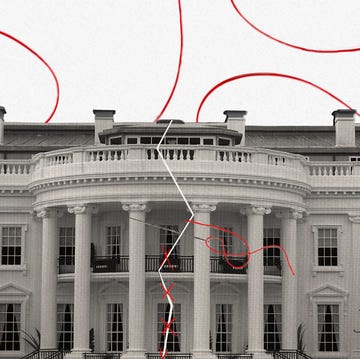Maine is a righteous state of less than two million people living on over four thousand offshore islands and one 35k mile large wing positioned just north of New Hampshire, south of Canada and flecked along the Atlantic coast. Deeply greened by the sun, the state’s mainland is just about the size of Ireland, a country where similar predilections prevail: stoic vulnerability, aloof independence, and ferocious modesty.
Twelve years ago, inspired by what seemed like a last frontier, I left New York City with my husband and a loose plan: less stress, more space, a quieter life. We weren’t alone. Cities, for all their promise, can wear down the soul. This fantasy of rural living has drawn women for generations. We seek what we imagine might be refuge, maybe even reinvention. During the pandemic, Maine became a kind of promised land for the restless and the rattled, those looking not just for safety but for a clean path back to something steadier. Between 2020 and 2022, more than 34,000 people made their way here, most from other corners of the country, some from farther still. By 2023, the number had swelled past 80,000. Only a third worked for Maine-based employers; the rest brought remote jobs or stepped away from work altogether, tilting their lives toward quiet, space, and some measure of reinvention.
Already settled into my new much smaller community, I scoffed at the mass exodus to Maine from other city folks, even though we all came for the same elements: woods, the clean air, the salt-cracked towns. For a patch of land, a porch light, the nearness of family, or the echo of some old, half-remembered belonging. Maine, once mostly summerland and postcard, had turned into something else entirely: one of the last good places to begin again.
I am not naïve. I have covered political violence as a journalist. I have written about authoritarianism and doomsday preppers, profiled political activists, interviewed incarcerated women who had been shackled to beds during childbirth. And like many of us, I’ve watched fascism creep out from the margins and into mainstream discourse. But even in covering these topics, it felt like something far away, something fenced in by screens and headlines. Like I said: these were “topics.” And out here, among the eastern white pines and the and the slow rhythms of life lived close to the elements, it seemed possible to believe in the peace I was seeking in Maine.
Then a neo-Nazi moved into the woods. Specifically to Springfield, Maine, population 293. Christopher “Hammer” Pohlhaus, a white supremacist, neo-Nazi “influencer” and leader of the extremist group The Blood Tribe, attempted to build a paramilitary training camp in my state. Land was cheap, and Maine is the whitest state in the union. He thought being in Maine meant he could go about his life mission without interference. The same isolation that drew so many of us here, that once felt like a kind of sanctuary was the very thing that made it possible for violent ideology to take root. Hammer didn’t come alone, or come quietly. He brought others and put out a call for arms: join me (as long as you are white and male) and we will train you and arm you for the takeover of Maine. We will turn Vacationland into a white ethnostate.
I spent six months investigating Hammer. With my children and husband in tow, I walked the land where Hammer’s neo-Nazi camp nearly took shape, LL Bean boots pressed into the same soil he had claimed for fascist preparation. I spoke to townsfolk he had encountered in Springfield’s general store. I interviewed (male) journalists who had been on Hammer’s tail, covering him in the wake of all his moves: purchasing the land, soliciting funds from other white nationalists, preaching hatred on his social media channels, leading Blood Tribe rallies in New England. Hammer wouldn’t speak with me because he doesn’t trust women.“I do find them to be enemies to us,” he has said, “and they should be treated as such.” He promotes claiming women as “war brides,” which involves taking away the “rights and control of how their reproductive system is to be utilized.” Despite being hidden in the woods, word got out about the neo-Nazi training camp, eventually making its way to Maine lawmakers, and in response, they passed a law banning private paramilitary training camps in Maine.
A year later, that protection is under threat. Right now in Maine, a new bill has been introduced to dismantle the ban, opening the door once again to armed groups organizing in our forests. The state’s ambivalence is telling. We want the illusion of safety, but not the political clarity required to defend it. What Pohlhaus exposed wasn’t just the reach of hate, but rather the fault lines in the fantasy that brings so many people to places like this.
The pastoral dream has always had a feminine edge. From Little House on the Prairie to modern homesteading influencers like Julie O’Rourke or the Ballerina Farm, women have long been cast as caretakers of the land, protectors of hearth and home, domestic alchemists turning chickens and canning jars into a form of resistance. It’s a story that transcends ideology. Leftists and libertarians, traditionalists and radicals, women of all classes and races-but particularly white women-have sought it out. The appeal lies in its promise: through physical labor, proximity to nature, and control over one’s space, a fractured self can be stitched back together.
And yet. The American homestead has never been apolitical. The original Homestead Act was built on colonization, offering stolen Indigenous land to white settlers as a reward for their allegiance. The frontier was not a blank canvas. It was, and still very much remains, a site of erasure, a site of performance, and a site of power.
Today, the fantasy persists in new forms. On one end: cottagecore, with its soft-focus vision of flowered aprons, handmade bread, and slow mornings under patchwork quilt jackets. On the other: the prepper movement, with its rhetoric of collapse and self-sufficiency, its fetish for firearms and distrust of institutions. Between them lies a spectrum of longing for simplicity, control, and refuge. But the underlying narrative is often the same: that the civilized world, particularly modern American society, is broken and salvation lies just past the edge of town.
This is the illusion Hammer exploited. The idea that rural land is neutral, apolitical, and somehow separate from or immune to the violence of the outside world. That the clearing in the woods is a sort of cradle for reinvention, in whatever form that takes.
When I testified in March of this year before the legislature to support the existing paramilitary ban, I listened to a couple men argue for its repeal. One in particular stood out to me: he spoke not of hate groups, but of government overreach. He warned that citizens need the right to defend themselves, and mentioned Black Lives Matter being labeled a terrorist organization. His logic wasn’t that different from mine, at least on the surface: that power is dangerous, people should prepare for disruption; political systems don’t always protect us. But where I see connection, he sees threat. Where I see interdependence, he sees autonomy at any cost. He wants a homestead with a perimeter of barbed wire. I want one with a garden gate left open.
It's tempting to believe that if you choose the right land, the right town (perhaps even the right country, at this point), and the right kind of solitude, you can outrun history, in all its forms. But even here, among the tall trees and the silence, it catches up. It’s up to the community, whatever their proximity to the land, to make it right. What I haven’t mentioned up to this point is that Hammer ended up leaving Maine; he ended up failing because the community turned him out and made him feel unwelcome. The solace and protection that we seek isn’t in the trees—it’s in the people.
As for Polhaus, since he’s left Maine, he and his girlfriend have been spotted in Southern Indiana—another place of intense rural beauty. This one has deep ties to the Ku Klux Klan and harbors a growing number of white supremacists groups.
I still live in Maine. I know all my neighbors quite well. On our small island, we have a tight knit community that we feel obligated to participate in for the good of us all. I didn’t realize at first how one cannot disappear as a newcomer. I don’t at all feel anonymous, and I am no homesteader, but I still keep a garden. I still love smell of our wood stove, the eggs my seven chickens will provide come warmer weather, and the money we will save thanks to our hens. I still walk in the woods almost every day. But I don’t mistake these things for safety anymore. I suppose I never did. I no longer believe that self-sufficiency is a moral good on its own. I believe in the land, the woods, and nature’s power to restore, to hold, and to teach. But I also believe we have to interrogate our relationship to it, especially as women, especially as people living in comfort made possible by other people’s displacement. If we want the clearing, we have to look at what’s been cleared. The woods are still beautiful. But the beauty alone will not save us.













